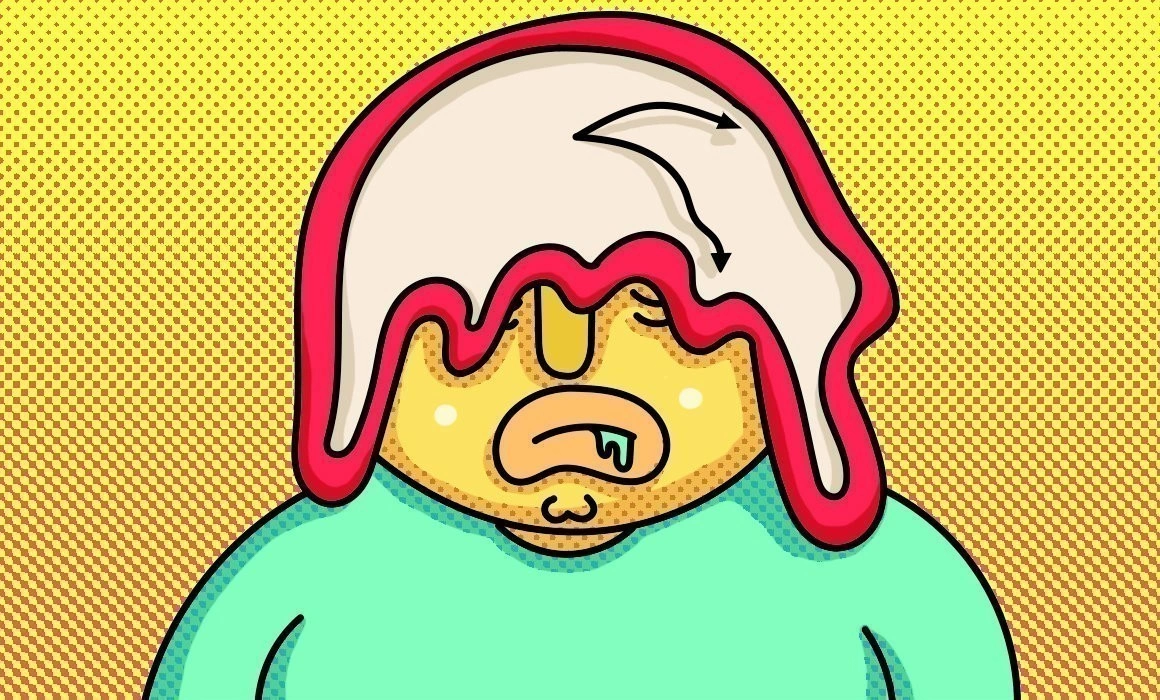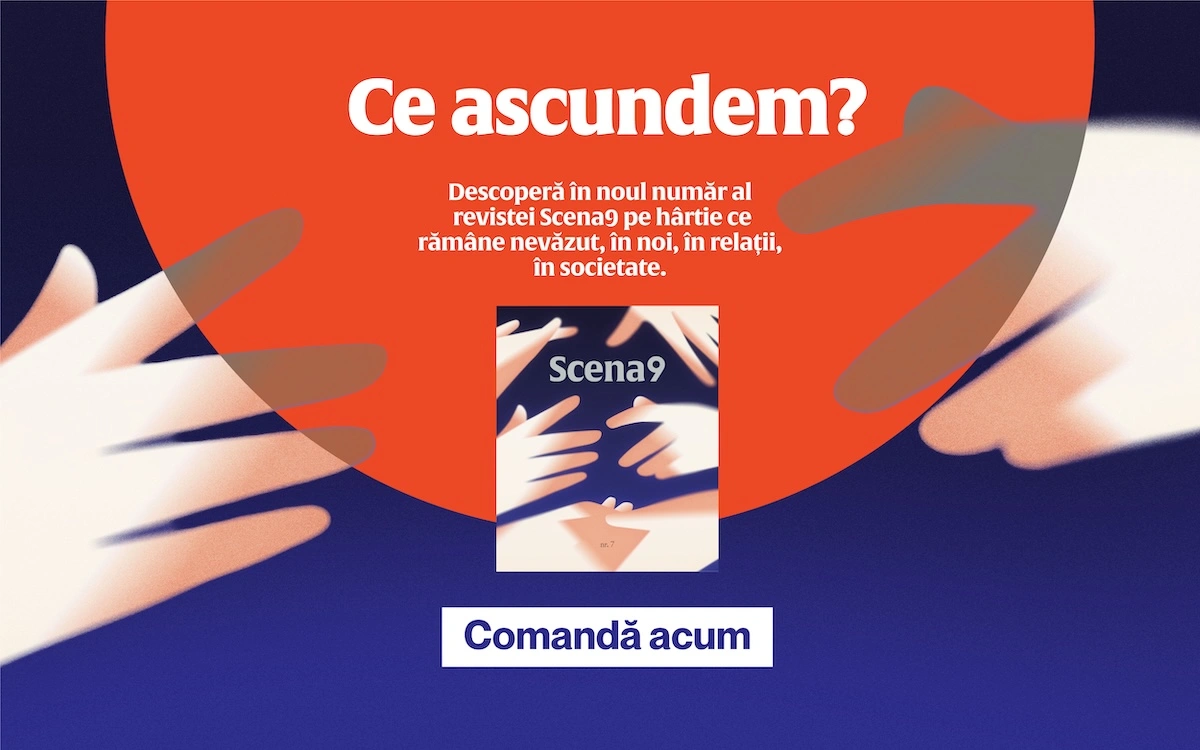I am 31 years old. I’ve lived 1,612 weeks and I have 2,392 weeks left, according to the life expectancy of Romanian women. The numbers aren’t set in stone, but the idea is the same: the time we have on this Earth will end and we’re acting as if we didn’t know this. We’re always late, we’re delaying, we’re procrastinating.
Maximilian Kiener, an Austrian designer, created an interactive infographic based on the theory of an 1890-something French philosopher, who claimed that we perceive time according to an “absolute time” that we relate to. What this means is that when you’re 10 years old, a year is one tenth of your life (aka “absolute time”), and when you’re 30, a year is one thirtieth, so it’s less, thus it goes by faster. Or, in the words of Maximilian, “to wait 24 days to Christmas when you’re 5, it’s the same as waiting one year when you’re 54” or “the summer vacation of your first year of college, is equal to your 76th year”. Better yet, go play with Maximilian’s infographic, and see how your life passes by, year after year. But promise me you’ll come back.
***
All done? Did you like it? So, you realized that it kind of sucks, that even if you still have a good number of years ahead of you, they’re going to go by much quicker than the ones that have passed? And it’s not just that. Imagine that, when you were 16, you had left about 5,000 talks with your parents, 800 sun rises, 750 binge drinking sessions, 4,000 sexual encounters, 40 trips to the sea, 10,000 laughs with your closest friends. Now you don’t. You’ve got about 2,000 talks with your parents, 50 sunrises, 45 binge drinking sessions, 1,000 and something sexual encounters, 20 trips to the sea, 6,000 laughs with your best friends. Your parents don’t live close by, your friends have their own lives to take care of, and the sun rises behind your blinds that you almost always keep closed. Life’s short, procrastination is long.
(Three hours have passed since I wrote the first line. In the meanwhile, I ate some cherries, fed the cats, brushed my teeth, folded the sheets that were on the couch, washed the the cherry bowl. I talked to 17 people on Facebook, answered 9 emails, and 2 calls. Ah, and I discovered a new song from The National. It’s called “The Day I Die” and it has lots of drums. I played it on repeat.)

Procrastination sounds like a contagious skin disease, but it actually means to postpone something while knowing you’re going to have to face the consequences later. But who cares about later? Tracey Potts, from the University of Nottingham, claims that procrastination was first brought to the specialists’ attention in the middle of the 20th century, in a memo from the United States Department of War, that reprimanded lazy soldiers. It was unacceptable, the Department said, to run from your military duty, “by passive means, such as pouting, stubbornness, procrastination, inefficiency, and passive obstructionism.” This was back in 1945, but it could easily apply to all of us, poor soldiers lying down in the trenches, waging a great war against the deadline.
What can you postpone, knowing you will suffer later? Small things, big things. Small things: your ANAF tax returns, doing the laundry, visiting old friends, dentist appointment (that’s not so small, is it?), a thank you email, an article, this and that. Big things: the project you know will change your life because it’s your Life’s Project, pension contributions, making amends with someone you’ve fought, the day you’re going to ask your parents what they regret the most in life, what makes them happy, where they would like to go on holiday.
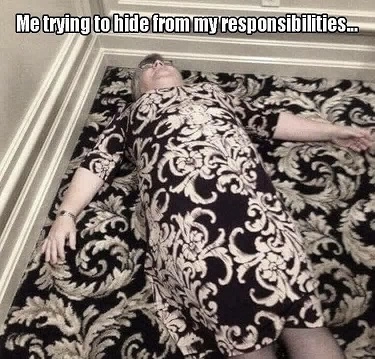
Over to you, Seneca: “You'll hear many say: After my fiftieth year I'll retire to a life of leisure; my sixtieth year will bring release from all my duties. And what guarantee, may I ask, do you have that your life will last longer? Who will allow those arrangements of yours to proceed according to plan? Are you not ashamed to keep for yourself only the remnants of your existence?” (Seneca, Alt timp nu am, Ed. Seneca, 2014). Seneca wrote these wise words around 2016 years ago, which means that issue of delaying isn’t a modern one. It’s just that, in the beginning, the issue belonged to the individual, and it pertained to their own lives and choices. After that, the protestant ethic and the spirit of capitalism reared its ugly head: work became man’s first duty, and postponing work, a sin.
We’re still in this mindset. Procrastination sucks not because it makes us less good as people, but because it transforms us into less efficient individuals. The Economist calculated what humanity could have achieved in the 16,000 years it wasted watching “Gangam Style” on YouTube: 20 Empire State Buildings, 4 and a half Stonehenges, more than 4 pyramids. The Economist didn’t calculate how many trips to the sea, how many siestas, or how many pistachio ice creams humanity could have had in 16,000 years. Because everything is about performance and efficiency. Maybe that’s why we like to sit with our eyes glued to clips of cats falling off the couch, or 30 second pie recipes – because every minute we waste watching gifs, clips, and cute photos is an ode to uselessness.
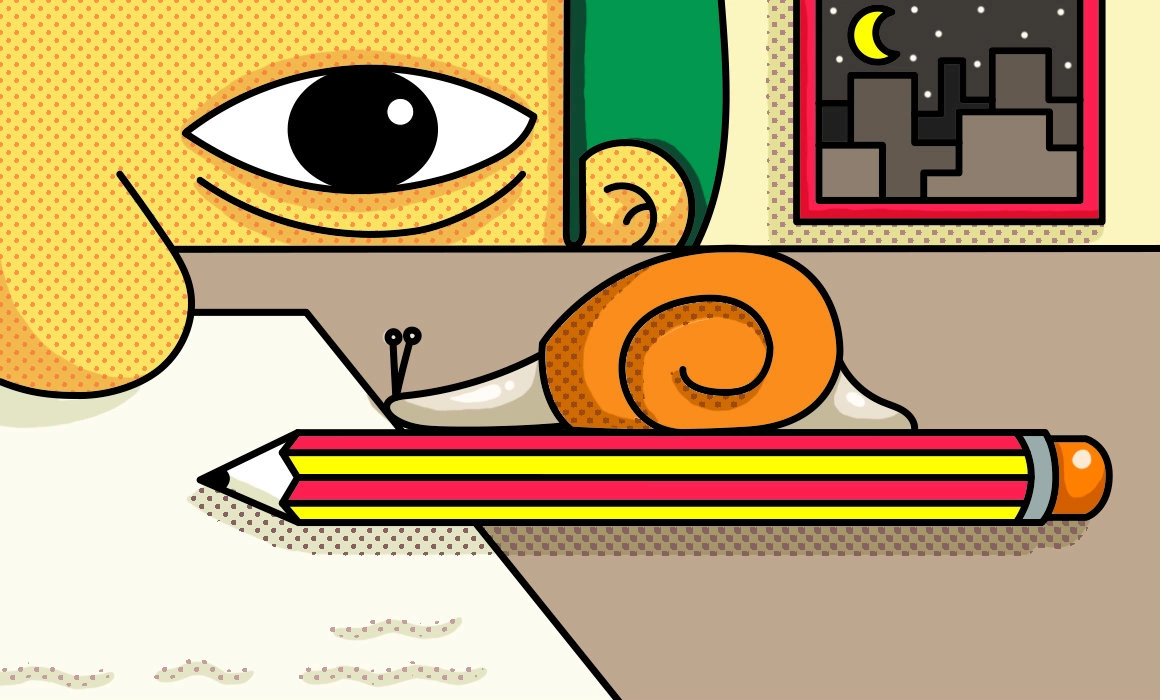
At the end of April, Facebook announced that the average user spends around 50 minutes a day on Facebook, Instagram, and Messenger. Add to that the minutes (more like hours) that you spend on WhatsApp. And also the emails, oh, the emails: the white collar American spends around 6.3 hours a day immersed in emails. I have not found more recent studies about internet usage in Romania, but I found something else (in Mona Dîrțu & Andreea Roșca’s Monday Memo): according to an EY study, “70% of employees and 86% of all Romanian managers, work overtime. In Germany, it is 45%. The issue here is that the same study reminds us that the productivity rate in Romania is six times less than the European Union average. And 7.5 times less than Germany’s.” I have no idea if this has anything to do with procrastination, but it’s obvious that we work a lot and we do it poorly.
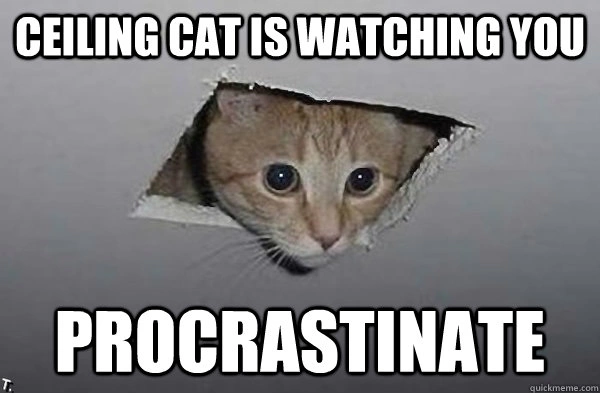
Procrastination can be horribly annoying, like a bullet you shoot into your own leg. Why? Because sometimes, you’re simply wasting time, when you could be doing a lot of cool things (and I don’t mean work). Something, instead of discovering a website where you could buy some sandals you will never actually buy. Instead of learning how to decorate a mug with a colorful string. And instead of checking the day’s scores for the UEFA European Championship, you could have gone to Elvira Popescu to see Zelig, your favorite Woody Allen. Or you could have gone out for wine with that friend you keep postponing, because “I work too much, I’ve got no time.”
Let him, who does not recognize himself in Alain de Botton’s The School of Life cast the first stone.

I haven’t always been like this. The first time I started abusing the snooze button was after I finished college (which is kind of funny, considering that almost all studies on procrastination are done on students). Until I was 20 something, time would stretch out on my Elysian Fields of happiness, the day had exactly 24 hours, if not more. I didn’t get cold sweats every time I had to write an article, I didn’t whine that I had too much work to do, and I didn’t waste time on the Internet. Then came my first job, my second, and with them all types of tasks that would find their place on to-do lists in my notebook. And thus, time turned into a cubbyhole with many drawers – at 8 o’clock you open the drawer and find 7 urgent tasks inside. In the 9 o’clock drawer, there are already 15 things to do, and so on and so forth. 24 drawers filled with tasks, deadlines, emails, and phone calls. Then the evening comes, and the contents of the last drawer fall on your head and leave you unconscious on the kitchen floor.
It is what it is, so you procrastinate. Wise men would say don't put off until tomorrow what you can do today, but who listens to wise men, anyway? You’re swallowed up whole by stress, tasks, and guilt, and you have no time to think about anything else. You are an active member of society; you are the perfect mouse on the wheel. And the wheel gets in your head and wreaks havoc on your brain.

Before I started reading studies on procrastination to be able to write something somewhat meaningful on this subject, I was under the impression that it was just a time management issue. That, if I were to finally come up with a method of self-discipline that would work, then I would hold the key to success. For the past two years, I’ve been unable to wake up on time in the morning. I tried all the apps out there, the ones that ask you to solve math equations before you can silence the ringer, and the ones that make you turn round and round, but to no avail. I deeply envy the people around me who can wake up at 6 am like it’s nobody’s business. I can’t. My role model in life is the Amazonian forest sloth, which myself and the rest of the tourist pack bothered while it was hugging a tree. To hug a tree all your life, now that’s the dream. So, I though that I had an issue with time, but I found out that I had many issues. It seems that the mechanism is as follows: you have quite a bit of work to do, you become stressed, you want to do everything as well as you can, you get a lump in your throat, maybe not now, maybe later, better tomorrow. The issue isn’t that I don’t know how to manage my time, it’s that I don’t know how to handle my emotions. I procrastinate because because I feel like I can’t start anything good when I am not the world’s happiest woman. Surely, I will be one tomorrow. Tomorrow, everyone will be happy, there will be no wars, and the articles will write themselves.
Apparently, it’s called “temporary myopia”. To believe that if you’re not in the mood today, you’ll surely be tomorrow. Tomorrow, what a beautiful word. Proust liked it, too. “Had I been less firmly resolved upon setting myself definitely to work, I should perhaps have made an effort to begin at once. But since my resolution was explicit, since within twenty-four hours, in the empty frame of that long morrow in which everything was so well arranged because I myself had not yet entered it, my good intentions would be realized without difficulty, it was better not to select an evening on which I was ill-disposed for a beginning for which the following days were not, alas, to shew themselves any more propitious. But I was reasonable. It would have been puerile, on the part of one who had waited now for years, not to put up with a postponement of two or three days.” (from In Search of Lost Time) This coming from the narrator of a heptalogy. Who didn’t have Facebook.
Writers in general don’t have a good relationship with time. Save for a few beasts of organization (say, Hemingway), the rest of them appear to be completely defenseless against it. Maybe the written word is the best space for postponement; maybe right there between two lines, lies the fear of disappointment and the horror of missing out on the perfect word combination. I heard once of a children’s book writer who would tie her shoelaces to her desk. I would do that, too, but it wouldn’t be enough. A few years ago, Zadie Smith and Jonathan Franzen talked about the tools they used to cut their Internet access while they were writing. One of them is called Freedom. You need to pay two Euros a month to be free. I didn’t pay, because I found a free option to block my online temptations. Out of habit, I would go on Facebook and would mindlessly refresh it, even though the website was blocked. Other options to discipline you online are: SelfControl, FocusMe, Focus. They work until you get bored of them and Google (you never give Google up), “how to unblock Facebook after I blocked it”. Or you can quit Facebook altogether. I did that for two months, and it was wonderful, but that’s not a long-term solution. You’ll always find something else to do. Even before the Internet, writers would procrastinate: Colette would hunt fleas on her bulldog named Souci (Worry), Graham Greene would search for combinations of lucky numbers, Dickens needed to have exactly 9 (nine) objects on his desk, etc. I am tempted to procrastinate a bit longer by searching for more procrastination habits (like finally cooking that onion soup, cleaning up your bathroom cabinet, watching an entire season of Gossip Girl), but I’ll stop here.

What is there left to do? Worry not, scientists are on this. Last year’s Biennial Procrastination Research Conference, that took place in Germany, at the Bielefeld University, saw the utterance of the following statements: „Measuring prototypes of delay using a vignette approach: Development and validation of the delay questionnaire”, „ Is cleaning the house more desirable? A project-analytic perspective comparing project dimension appraisals for avoided tasks and the adopted alternative tasks”, „To be or not to be: Indecisive procrastinator's feelings and desire to change”, „Connections between procrastination, impulsiveness, and self-regulation: do the behavioral results echo the survey data?”, „Japanese procrastination: A cultural examination of the indecisiveness of individuals who belong to a collective culture”, „Procrastination and media use as a escapism: Same same, but different”.
So, what is there to do? That is if you truly want to do something, because apparently, sometimes procrastination is good for you (good for creativity, bad for productivity). When it’s not good, the Internet says: to not exchange a droplet of dopamine, now for a bucket of chaos, later. To not believe that tomorrow will be better. To not stay stuck in a thing that just won’t work. To calculate the time it takes you to do something and DOUBLE it (sorry for the caps). To work and when and if you’re not in the mood, to break up a large assignment into smaller tasks. To reward yourself, to emotionally blackmail yourself, etc.
There’s something that you can’t find on the Internet, though: that the best thing you can do is breathe. The issue isn’t that you’re doing too little, but that you’re worrying too much about doing too little. Get rid of the guilt, eat some cherries. Take it easy. Join the Resistance against Deadlines. Open the window. Ask for an extra day between Saturday and Sunday. And if you’re not given one, make do with what you have. Remember that you don’t have an eternity at your fingertips. And frame these words above your desk. Words that come from a group portrait of New York seniors, about Jonas Mekas, the Godfather of American avant-garde cinema and collector of everyday glimpses of beauty:
“He said that he never worried about the future. Even now, he wakes up without a plan and then he does whatever he feels like doing that day. “I’ll start worrying when something happens”, he said. “Why worry when nothing’s happening? And then again, why worry when something is happening? You’ll be OK (…) As long as you don’t waste time.”
Mekas is 93 years old. How old are you?
Note: Because of my intense procrastination while writing this article, I missed the birthdays of two good friends. Bogdan, Nicu, happy birthday. Next year, I’ll do a little less writing!
Translated from the Romanian by Cristina Costea
For more fresh English-language cultural journalism, brought to you by the new voices of Romania, look here.
